Benjamin Theodor Herzl was a Jewish Austro-Hungarian journalist, playwright, and political activist. He is widely considered the father of modern political Zionism, a movement that sought to establish a Jewish homeland in Palestine.
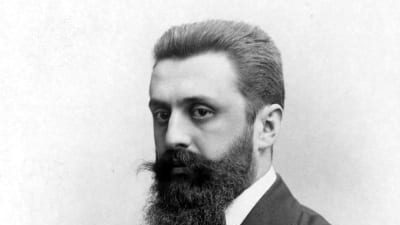
Theodor Herzl was born to a wealthy Jewish family in Budapest, Hungary, on May 2, 1860. He was educated at the University of Vienna, where he studied law and literature. After graduation, Herzl was a journalist for various newspapers, including Neue Freie Presse in Vienna.
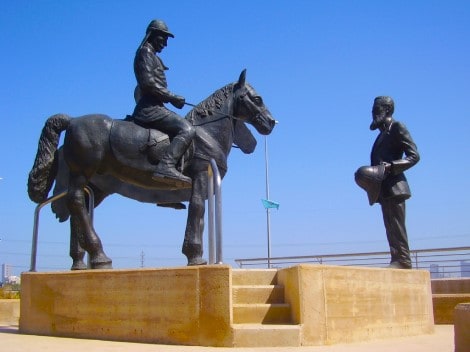
In 1896, Herzl published his seminal work, “The Jewish State,” arguing for establishing a Jewish state in Palestine. Furthermore, the book responded to rising anti-Semitism in Europe and the increasing persecution of Jews in Russia.

The Alfred Dreyfus Affair
The Alfred Dreyfus affair, which occurred in France in the late 19th and early 20th centuries, had a significant impact on the life of Benjamin Theodor Herzl and the development of Zionism. Dreyfus, a French Jewish army officer, was falsely accused and convicted of treason in 1894 and sentenced to life imprisonment on Devil’s Island in French Guiana.
The trial and subsequent appeals were marred by anti-Semitic sentiment and political intrigue. Herzl, who was a journalist in France at the time, covered the trial and was shocked by the level of anti-Semitism that he witnessed.
Herzl Museum
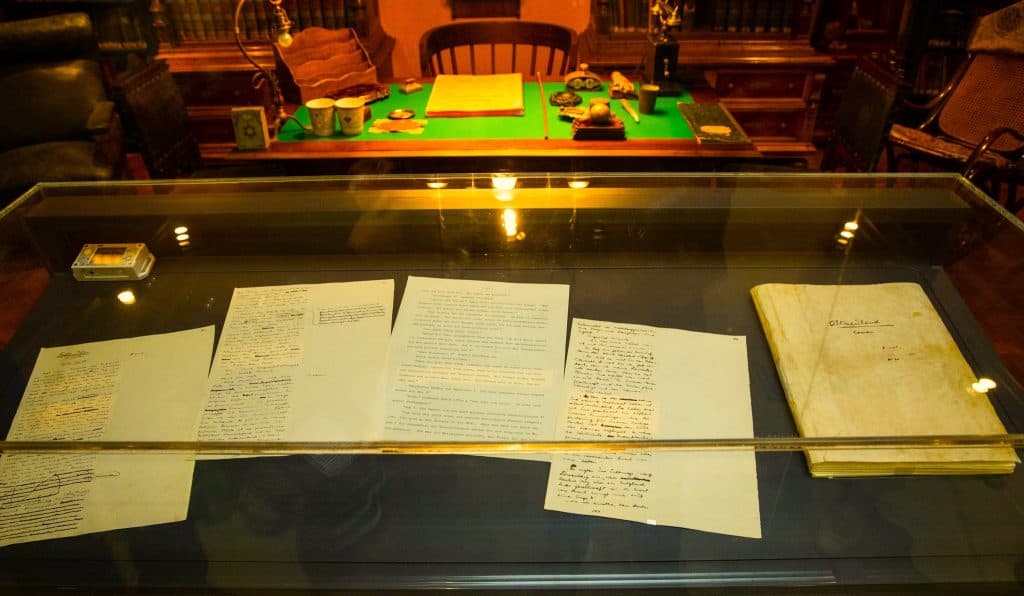
He saw the Dreyfus affair as proof that Jews could not find acceptance and security in European society and that establishing a Jewish state was the only solution. The experience of witnessing the Dreyfus affair inspired Herzl to write his seminal book, “The Jewish State,” which laid out the case for Jewish national liberation and the creation of a Jewish state.
He saw establishing a Jewish state as the only way to ensure the safety and prosperity of the Jewish people. Herzl’s advocacy for the Jewish state was also influenced by his belief that the Jews were a distinct nation with their own culture, history, and language.
He believed that establishing a Jewish state would allow Jews to preserve their identity and culture while also providing a haven from anti-Semitic persecution.
Herzl spent the rest of his life working tirelessly to promote the Zionist cause. He organized the First Zionist Congress in Basel, Switzerland, in 1897, which brought together Jewish leaders from around the world to discuss the establishment of a Jewish homeland in Palestine.
Zionism
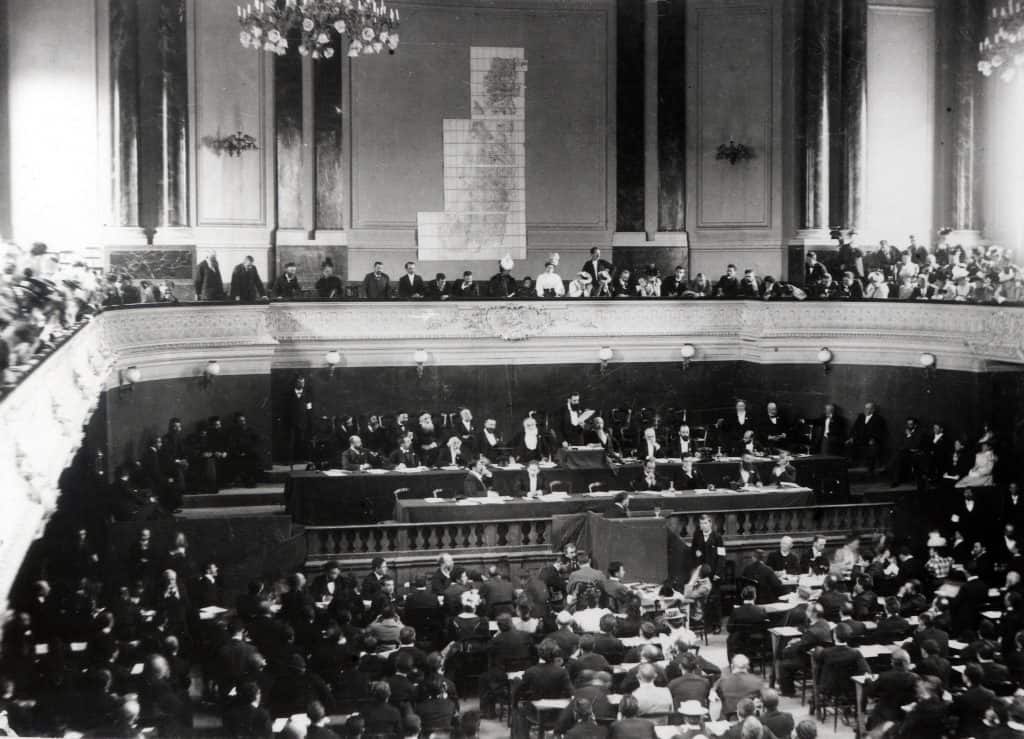
“If You Will It, It Is No Dream.”
Benjamin Theodor Herzl
Theodor Herzl Visit to Palestine
Benjamin Theodor Herzl visited Israel once during his lifetime. In 1898, he traveled to Palestine (which was then part of the Ottoman Empire) and met with Ottoman officials, Jewish settlers, and Arab leaders. During his visit, Herzl inspected potential sites for Jewish settlements and attended a ceremony where he was presented with the keys to Jerusalem.
Were I to Sum up the Bazel Congress in a Word- Which I Shall Guard Against Pronouncing Publicly- It Would Be This: ‘At Bazel, I Founded the Jewish State. If I Said This Out Loud Today, I Would Be Answered by Universal Laughter. If Not in 5 Years, Certainly in 50, Everyone Will Know It.’
Herzl”s Diaries
His visit to Palestine was widely covered in the international press, and it helped to raise awareness about the Zionist movement and its goals. Herzl’s trip to Palestine was significant because it demonstrated his commitment to the Zionist cause and his belief in establishing a Jewish homeland.
Herzl arrived in Palestine via Jaffa Port and spent some time in the city before continuing to Jerusalem. Then Herzl spent several days in Jerusalem, visiting the Old City. He also saw the Jewish agricultural colony of Rishon LeZion, established by Zionist pioneers in 1882. He did not skip the town of Zichron Yaakov, which Jewish settlers had also founded in the 1880s. Last, Herzl visited Rehovot! At the time, a newly established Jewish agricultural colony was founded in 1890.
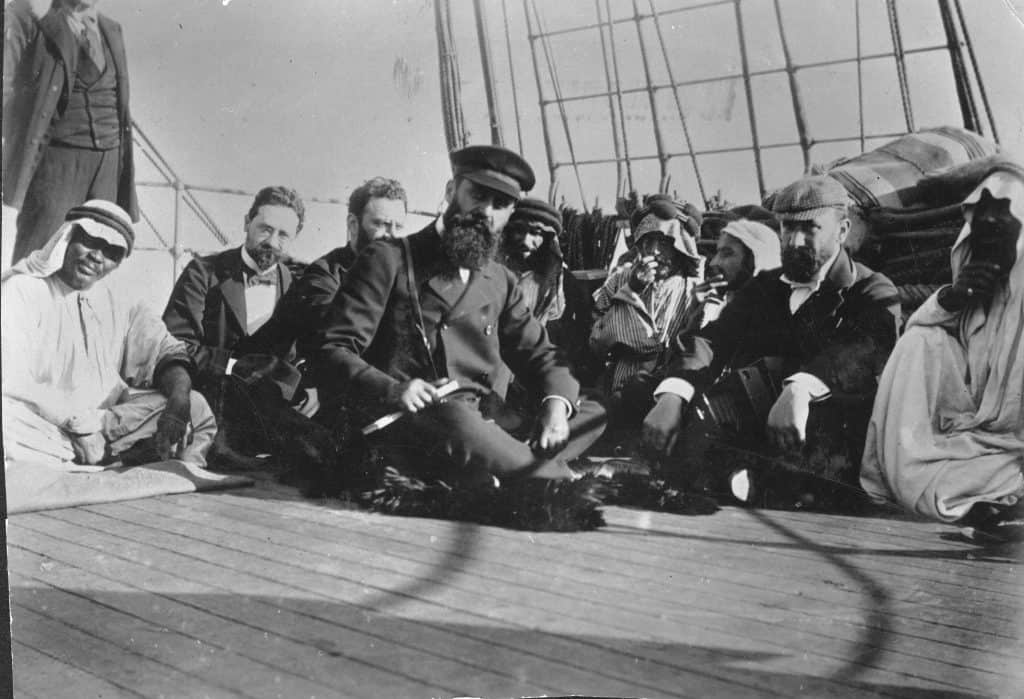
Moreover, Herzl met with numerous European leaders, including the Ottoman sultan and Kaiser Wilhelm II of Germany, to secure political support for the Zionist cause. Although he did not live to see the establishment of the State of Israel, Herzl’s tireless advocacy helped pave the way for the eventual creation of a Jewish homeland.
Herzl’s Altneuland
Benjamin Theodor Herzl’s book “Altneuland” (translated as “The Old New Land” or “Old-New Land”) was published in 1902 and is considered a classic of Zionist literature. The book describes Herzl’s vision for a Jewish state in Palestine and presents an idealized picture of what that state could look like.
The main ideas presented in “Altneuland” include Jewish Statehood: Herzl believed the Jewish people needed a homeland to live free from persecution and discrimination. He saw establishing a Jewish state in Palestine as the solution to this problem.
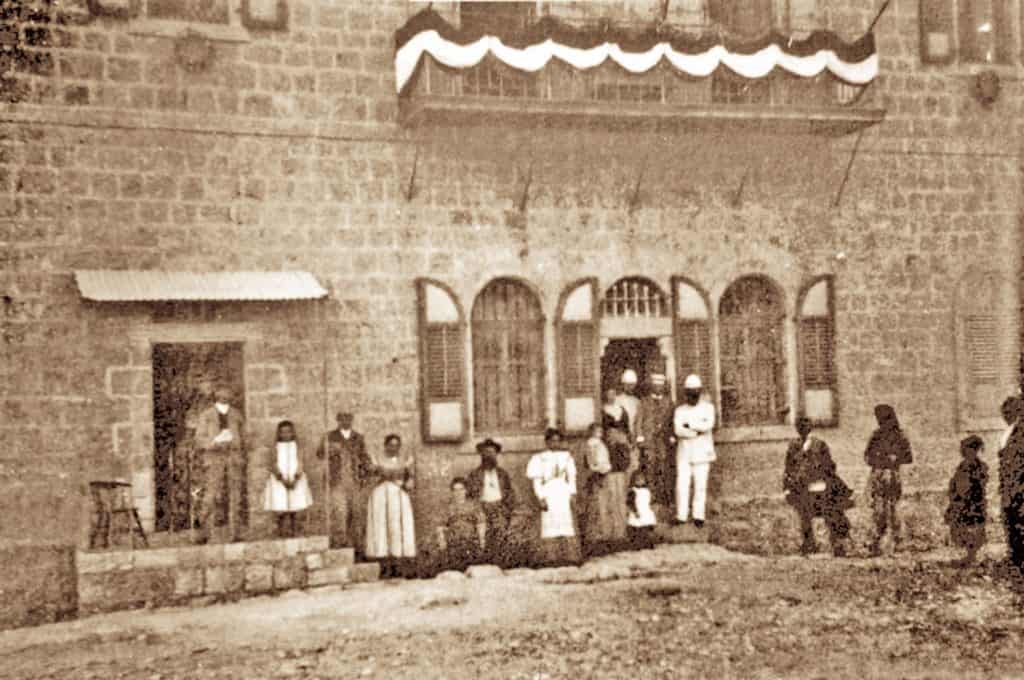
In addition, “Altneuland” presents a vision of a Jewish state that is open and welcoming to people of all cultures and religions. In Herzl’s vision, Jews and Arabs would live in peace and harmony, and the state would be a model of multiculturalism and tolerance.
The state in “Altneuland” is portrayed as a model of progress and innovation. “Altneuland” also presents a vision of a society based on social justice and equality. Overall, “Altneuland” was a groundbreaking work that helped to inspire the Zionist movement and promote the idea of a Jewish state in Palestine. Its ideas about multiculturalism, modernity, and social justice continue to be influential today.
Herzl’s Death and Burial
Herzl died of a heart attack on July 3, 1904, at 44. He was buried in Vienna, but his remains were later moved to Jerusalem, where he was reinterred on Mount Herzl, named in his honor.
Herzl's Tomb
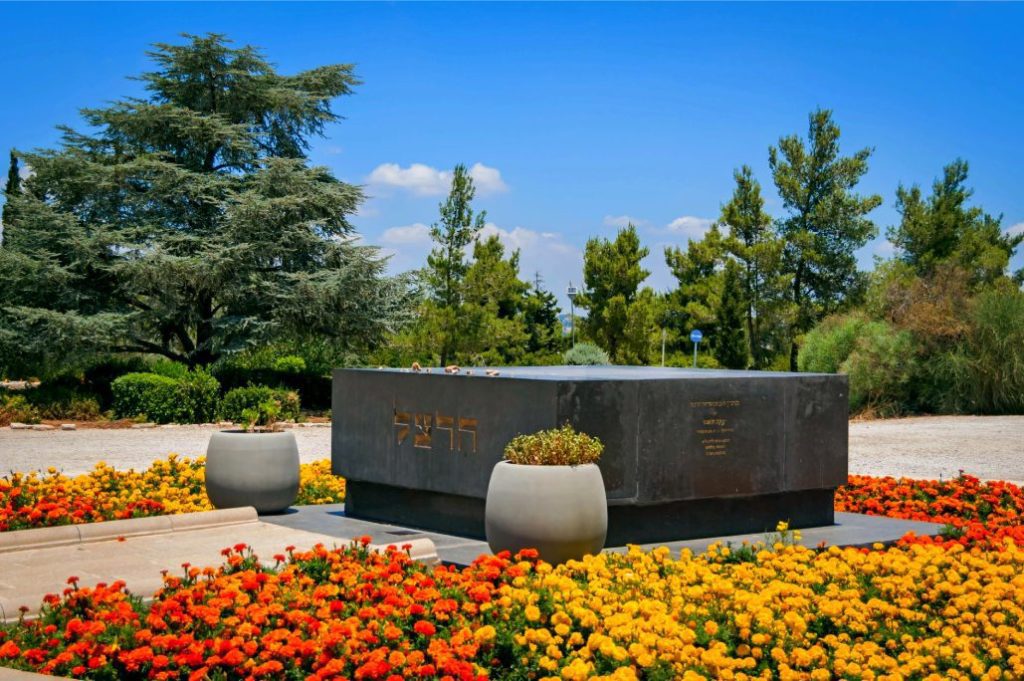
Today, Herzl is remembered as a visionary leader and a champion of the Jewish people. His legacy continues to inspire Jews worldwide to work toward fulfilling the Zionist dream of a Jewish homeland in the land of Israel.

